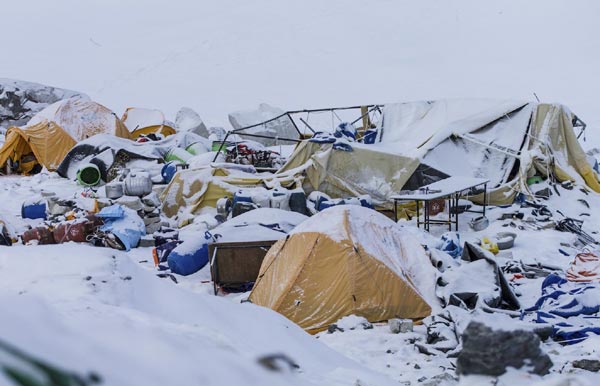After Nepal disasters, more climbers eye Chinese route to top of world
(Agencies) Updated: 2015-05-11 11:41
KATHMANDU - Climber Carsten Pedersen has not given up his childhood dream of scaling Qomolangma (also known as Mount Everest in the West), despite last month's avalanche that killed 18 people at base camp after a devastating earthquake. But if he does try again, it may well be from China, not Nepal.
Frustrated at the Nepal government's silence over whether his permit to scale Qomolangma will be extended due to the disaster, the Danish amateur is one of a growing number of climbers considering another route up the world's highest peak.
"To every reaction, there is going to be a reaction," said Pedersen, who has spent more than $110,000 on three previous attempts to conquer Qomolangma.
"My reaction if they don't extend the permit? I will probably go to Tibet to climb it. It is not that complicated."
If the number of mountaineers switching routes continues to rise, the damage to Nepal's trekking and climbing industry could be significant.
While the permits themselves only account for a few million dollars each year, the sector overall is worth some $340 million, and the draw of Qomolangma plays a crucial role in the industry.
"This one mountain has an oversized impact on the rest of the tourism in the country," said Prachanda Man Shrestha, a former head of Nepal's tourism department.
So trekking agencies and mountaineers in Nepal are urging the government to make up its mind about what to do with this year's permits, which cost $11,000 per climber.
At the same time they recognise that, overwhelmed by a natural disaster that has killed nearly 8,000 people, the government has other priorities.
Tulsi Prasad Gautam, head of Nepal's tourism department, said the government was not in a position to refund fees, which go into state coffers once paid, and a decision would be made in the next few months on whether they would be extended.
"If the government extends the permit, then clients will come back," said Sonam Sherpa of mountaineering outfit Thamserku Trekking and Yeti Airlines, one of Nepal's best known domestic carriers that flies climbers to remote regions.







